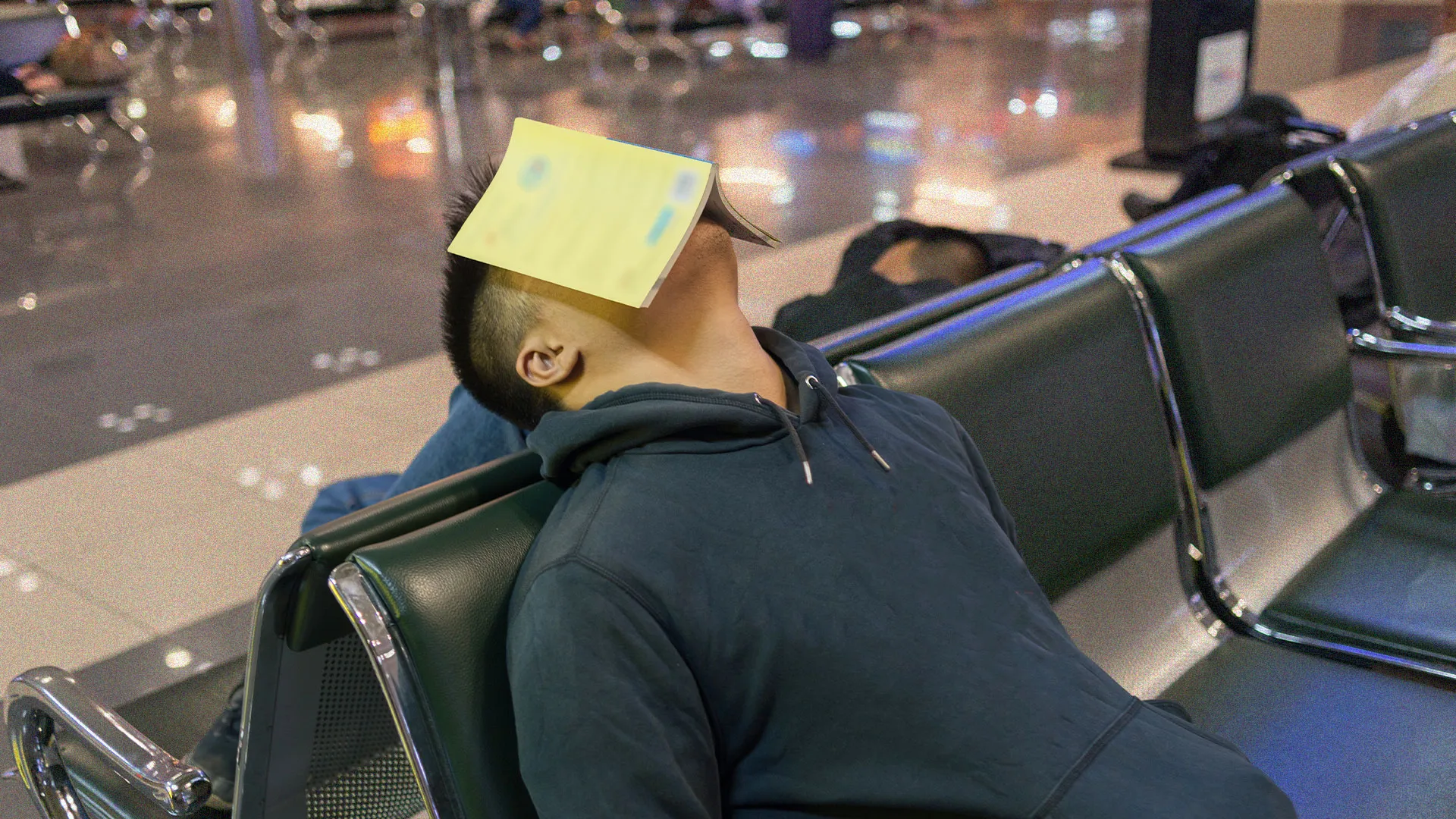By Saloni Dhruv
That bone-deep exhaustion that you feel post your flight, it has a term, and it is called travel fatigue. You get on a plane, squeeze into a tight seat, sit still for hours, and still land feeling completely drained. That’s travel fatigue. Flying, something that seems so passive, can be very exhausting, and that鈥檚 because flying entails a mix of physical stress, uncomfortable conditions, and the mental strain of being packed in with hundreds of other tired people miles above the ground.
The irony is that air travel, once a luxury, has devolved into a test of human endurance. Flying is exhausting not because it鈥檚 physically demanding in the traditional sense, but because it鈥檚 an orchestrated assault on your body鈥檚 homeostasis. Pressurised, dehydrated, immobilised, overstimulated, and underslept, your system will obviously rebel, and by the time you land you’re a wreck.
The real reason travel fatigue hits so hard after a flight
Here鈥檚 the science behind it
Let鈥檚 start with the air pressure. At cruising altitude, commercial airplanes maintain a cabin pressure equivalent to 6,000 to 8,000 feet above sea level. That鈥檚 thinner air, with less oxygen. Your body compensates by working harder to deliver oxygen to your brain and muscles, even when you’re doing nothing. This low-grade hypoxia doesn鈥檛 make you pass out, but it can cause headaches, dizziness, and that heavy, sluggish feeling you can鈥檛 quite shake after landing.
Dehydration
Then there鈥檚 humidity, or the lack thereof. The air inside a plane is dry and often with humidity levels below 20 per cent. That zaps moisture from your skin, eyes, and mucous membranes, contributing to dehydration. And dehydration, even mild, impairs cognitive function and increases fatigue. Add the salty in-flight meals and snacks, and your body ends up more like a dried-out sponge than a hydrated human being.
Immobility adds into this factor too. Hours spent sitting in a cramped, upright position, knees jammed against the seat ahead of you, disrupt blood flow and strain your muscles. Your back aches. Your legs stiffen. Even your digestion slows down. It isn鈥檛 just physical discomfort, but a low-level physiological stress that builds with every hour in the air.
Bloating and indigestion
In air, your body is in survival mode. It鈥檚 busy keeping blood flowing to your limbs, battling dehydration, and fending off airborne germs, all while your immune system takes a hit. Digestion drops down the priority list and you start having a sluggish gut, bloating, and the all-too-familiar post-flight puffiness.
Nervous system
Flying assaults your nervous system too. Airports are sensory minefields with bright lights, loud announcements, endless lines, pat-downs, gate changes, delays. There鈥檚 the constant vigilance over your passport, carry-on, liquids, laptop, and sanity. All this elevates cortisol, your stress hormone, long before the flight even takes off. And then there鈥檚 jet lag. Cross a few time zones and your internal clock spins out, turning your sleep schedule into a scrambled mess.
What鈥檚 the difference between travel fatigue and jet lag?
Though often used interchangeably, travel fatigue and jet lag aren鈥檛 the same. Travel fatigue can hit you after any long journey (plane, train, or car) thanks to hours of sitting, stress, and disruption. Jet lag, on the other hand, is strictly airborne and time zone-related. Jet lag is what happens when your body clock crashes into a new local time. It鈥檚 a circadian rhythm disorder triggered by crossing multiple time zones, leaving you wide awake at 3 a.m., groggy at noon, and prone to headaches, insomnia, and irritability. In short: travel fatigue makes you tired; jet lag scrambles your internal wiring.
How to deal with travel fatigue
The fix to combating travel exhaustion is by being strategic. Hydration is very important. Hydrate before, during, and after your trip. Remember that caffeine and alcohol only make it worse. Another thing to note is to physically move whenever you can. Stretch, walk, flex your legs. It keeps circulation going and wards off that heavy, sluggish feeling. With your meals, keep it light. Skip the salty snacks and heavy in-flight food that slows digestion and causes bloating. In flight, try to rest and relax. Use an eye mask, earplugs, or noise-canceling headphones to carve out quality rest, and time naps to your destination if possible. Once you land, don鈥檛 dive into a packed schedule. Step outside, get some sunlight, breathe. Natural light resets your body clock and helps fight fatigue. Consider supplements like melatonin or electrolytes if needed, but learn to intuitively listen to your body above all.
